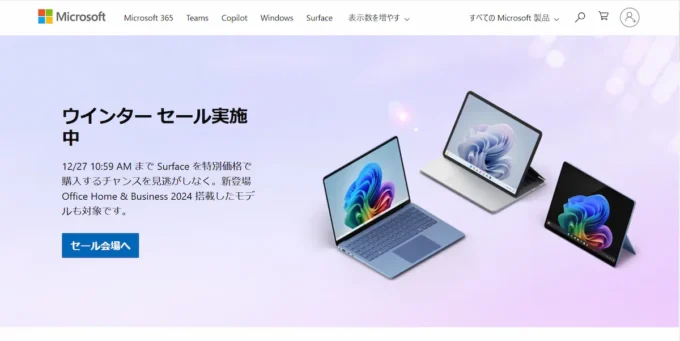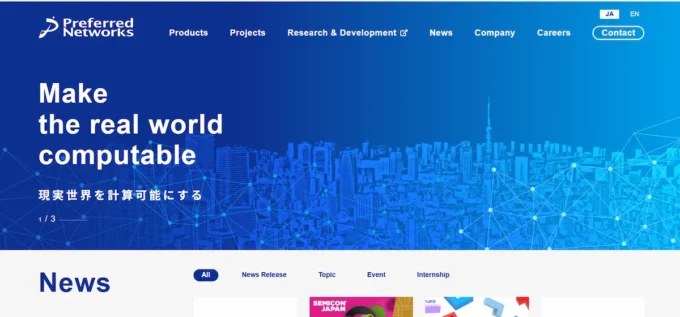With the evolution of technology, tech companies are becoming increasingly prominent. From global tech giants like GAFAM to rapidly growing Japanese startups, their forms are diversifying.
This article provides a comprehensive analysis of the tech industry, covering everything from the definition of tech companies to notable Japanese firms, salary information, and career transition strategies.
- How tech companies operate and differ from traditional firms.
- Top Japanese tech companies and their salary ranges.
- How to start a career in the tech industry.
1. Understanding Tech Companies
The term “tech company” refers to businesses that leverage technology in their business models. While their presence continues to grow, what exactly characterizes them, and how do they differ from traditional companies?
Let’s explore the basic definition of tech companies and their distinctive features in detail.
Definition and Scope of Tech Companies
A tech company is broadly defined as an organization that utilizes cutting-edge technology to conduct business. Rather than merely using IT, these companies create new value with technology at their core, bringing innovation to existing industries and services.
Globally, prominent examples include American GAFAM companies (Google, Amazon, Facebook, Apple, Microsoft) and Chinese BATH companies (Baidu, Alibaba, Tencent, Huawei).
These companies have grown to achieve global influence by leveraging innovative technologies to transform traditional business models.
Differences Between Traditional and Tech Companies
The distinctions between tech companies and traditional businesses are most evident in three aspects: business model, organizational culture, and business development.
In terms of business model
Technology-driven value creation is characteristic. They develop services based on technological innovation and build highly scalable business models. They can also rapidly expand into markets and have very quick product and service improvement cycles.
In organizational culture
They adopt flat organizational structures and prioritize quick decision-making. They also have a culture deeply rooted in innovation, fostering an environment that encourages new challenges without fear of failure.
In business development
They maintain a global perspective, actively pursuing cross-border service expansion and worldwide talent recruitment. They also emphasize data-driven decision-making, developing strategies based on detailed analysis and actively utilizing user feedback.
Required Skills and Mindset in Tech Companies
Success in tech companies requires technical skills, soft skills, and a distinctive mindset.
Technical Skills
- Advanced technical capabilities including programming skills, system design abilities, and data analysis
- Expertise in specialized areas
Soft Skills
- Communication skills for collaborating with diverse specialized teams and conveying ideas in global environments
- Problem-solving abilities including creative solution development and logical thinking
Mindset
- Innovative thinking that isn’t bound by existing frameworks
- Continuous learning attitude and strong curiosity about new technologies
- Autonomous problem-solving abilities and high ownership mentality
2. Current State of the Japanese Tech Market

With the acceleration of digital transformation (DX), Japan’s tech company market is developing rapidly. The market size continues to expand yearly, with new players constantly entering the field.
Here’s a detailed look at the latest market trends and major company movements, supported by concrete data.
Market Size and Growth Rate Trends
Japan’s tech company market continues to grow rapidly, driven by accelerating digital transformation (DX). Particularly since the COVID-19 pandemic, digital demand has increased, and the market size has steadily expanded.
The DX market size has grown from 1.5 trillion yen in 2019 to 3 trillion yen in 2023, with projections exceeding 8 trillion yen by 2030. The growth rate maintains an annual average of 15-20%, with particularly notable growth in cloud, AI, and IoT sectors.
Key Players and Market Share
Japan’s tech company market consists of three main categories of players:
Global Tech Companies’ Japanese Subsidiaries
Maintaining high market share through abundant capital and technical capabilities while leveraging global expertise.
Major Japanese IT Companies
Implementing steady growth strategies while utilizing deep understanding of the domestic market and existing customer base.
Emerging Tech Startups
Achieving rapid growth through innovative business models and agile business development.
Notable Tech Companies
Japanese subsidiaries of globally influential tech companies hold important positions in the domestic market.
Let’s examine the Japanese operations, employee scale, and market share of major companies like Google, Apple, Microsoft, Facebook, and LinkedIn in detail.

Google Japan (Google G.K.) provides various internet services centered around its search engine.
The company employs over 2,000 people in Japan, with annual revenue reaching approximately 1 trillion yen. Notably, it commands over 75% of the search engine market share in Japan, demonstrating overwhelming market influence.
Apple

Apple Japan G.K. offers hardware products like iPhone and Mac, along with various digital services.
The Japanese market holds strategic importance for Apple, with iPhone maintaining approximately 50% market share. The company’s products and services receive strong support from Japanese consumers, and its brand value is highly regarded.
Microsoft

Microsoft Japan Co., Ltd. focuses on enterprise software and cloud services, experiencing rapid growth particularly through Azure cloud services.
With approximately 3,000 employees and annual revenue exceeding 1 trillion yen, the company plays a crucial role in promoting corporate digitalization and has established leadership in the cloud services market.
Meta (formerly Facebook)
-680x346-1.webp)
Meta’s Japanese subsidiary primarily operates social networking platforms while actively investing in metaverse business initiatives.
The company has built a strong user base in Japan’s social media market through Instagram and WhatsApp, and has become a key player in the digital advertising market.

LinkedIn Japan, under Microsoft’s umbrella, has been steadily increasing its presence in Japan as a business-focused social network.
With over 1 billion users globally, its usage is growing in Japan, particularly among multinational companies and technology professionals. The platform has established a unique position as a business networking platform, offering services targeted at business professionals.
■日本でエンジニアとしてキャリアアップしたい方へ
海外エンジニア転職支援サービス『 Bloomtech Career 』にご相談ください。「英語OK」「ビザサポートあり」「高年収企業」など、外国人エンジニア向けの求人を多数掲載。専任のキャリアアドバイザーが、あなたのスキル・希望に合った最適な日本企業をご紹介します。
▼簡単・無料!30秒で登録完了!まずはお気軽にご連絡ください!
Bloomtech Careerに無料相談してみる
3. In-Depth Analysis of 10 Notable Japanese Tech Companies

Let’s examine companies that are particularly noteworthy in Japan’s tech scene.
From established companies with high salary levels to rapidly growing companies with innovative services, we’ll analyze each company’s characteristics and strengths in detail.
Top Japanese Tech Companies – Salary Rankings
Let’s look at the top three Japanese tech companies by average annual salary.
1. JustSystems [Average Annual Salary: 14.28 million yen]
![1. JustSystems [Average Annual Salary: 14.28 million yen]](http://global.bloomtechcareer.com/wp-content/uploads/2025/02/justsystem.webp)
Company Name: JustSystems Corporation Established: June 2, 1981 Capital: 10.15 billion yen Employees: 303 (as of March 2024)
JustSystems is a leading Japanese software company known for “Ichitaro” and “ATOK”. Recently, they’ve actively expanded into education and AI-related businesses while maintaining stable performance.
The company particularly stands out for its high compensation for technical positions, with engineer salaries ranking among the industry’s highest. While leveraging their traditional software development strengths, they continue to venture into new technological domains.
2. SoftBank Group [Average Annual Salary: 13.60 million yen]
![2. SoftBank Group [Average Annual Salary: 13.60 million yen]](http://global.bloomtechcareer.com/wp-content/uploads/2025/02/2.-SoftBank-Group.webp)
Company Name: SoftBank Group Corp. Established: September 3, 1981 Capital: 238.77 billion yen (as of March 2024) Employees: 255 (65,352 on consolidated basis) (as of March 2024)
SoftBank Group continues to grow as a comprehensive technology company, investing in various fields including AI, IoT, and fintech while maintaining its telecommunications business foundation.
Through Vision Fund, they’ve established a global presence in technology investment, playing a crucial role in driving growth for technology companies worldwide.
Being a holding company contributes to SoftBank Group’s high average salary. With many administrative staff and a higher age demographic, the average compensation exceeds that of operational subsidiaries.
3. Nomura Research Institute [Average Annual Salary: 12.71 million yen]

Company Name: Nomura Research Institute, Ltd. Founded: April 1, 1965 Capital: 25.65 billion yen Employees: 7,206 (NRI Group 16,708) as of March 31, 2024
Nomura Research Institute has established a strong position as a major tech company providing consulting and IT solutions, particularly in the financial sector.
While leveraging their traditional expertise in finance, they actively engage in implementing cutting-edge technologies such as DX support and AI applications. They continue to promote their own technological innovation while supporting client companies’ digitalization.
Their high profitability business model and philosophy of viewing human resources as assets are reflected in their generous employee compensation and benefits.
Rapidly Growing Tech Companies
In Japan’s tech scene, companies are emerging in diverse fields such as AI, HR Tech, fintech, and biotechnology, offering innovative services.
Particularly with recent acceleration in digitalization, these companies are achieving rapid growth and bringing new vitality to the industry.
Preferred Networks

Established: March 26, 2014 Business: Software and hardware development applying advanced technologies such as deep learning and robotics Employees: Approximately 300
Preferred Networks develops innovative technologies centered on deep learning, working across various fields including industrial robotics, autonomous driving, and bio-healthcare.
The company has received global recognition for its cutting-edge AI technology research and is developing practical AI solutions through collaborations with major companies like Toyota Motor Corporation.
Their overwhelming technical capabilities and research development system in the AI field are key elements supporting their sustainable growth.
SmartHR

Established: January 23, 2013 Business: Planning, development, operation, and sales of SmartHR Employees: Not disclosed
SmartHR is promoting back-office digitalization by providing cloud-based HR and labor management software.
Their service has earned high praise for its user-friendly UI and comprehensive API integration capabilities, establishing a solid share in the HR SaaS market. The number of implementing companies is rapidly increasing, with further growth expected against the backdrop of work style reform and digitalization trends.
SmartNews

Established: June 15, 2012 Business: Development and operation of smartphone applications and internet services Employees: Not disclosed
SmartNews operates a news curation app utilizing proprietary algorithms and conducts business both domestically and internationally. Their service has gained significant user support through their technologically advanced article distribution system.
Advertising revenue is steadily increasing, with further growth expected through accelerated global expansion.
Spiber

Established: September 26, 2007 Business: Next-generation biomaterial development Employees: 284 (as of April 2024)
Spiber is a next-generation biotech company working on environmentally conscious new material development. The company possesses world-leading patent technology and R&D capabilities in structural protein material research and development.
As interest in sustainability grows, their environmentally conscious materials are attracting global attention, with market expansion expected in the future.
Opn

Established: March 2020 Business: Provides online payment platforms, financial services, and digital payment solutions primarily in Southeast Asia Employees: Not disclosed
Opn is achieving rapid growth in the Asian market as a fintech company providing comprehensive payment platforms. The company is particularly focused on business expansion in Southeast Asia, growing its business scale alongside the expansion of cashless payment markets.
They are achieving sustainable growth through payment technology innovation and region-specific service development.
GREE

Established: December 7, 2004 Business: Game/anime business, metaverse business, DX business, manga business, investment business Employees: 1,597
GREE primarily operates mobile game and internet media businesses. Since its establishment, they have continuously provided innovative services in the mobile internet sector, and continue to develop their business while actively incorporating new technologies and trends.
GO

Established: August 1977 Business: Mobility-related services including dispatch systems for taxi operators Employees: Not disclosed
GO operates the “GO” AI-powered taxi dispatch platform. By using AI to predict demand and optimize dispatch, they improve both taxi operators’ profitability and user convenience.
They provide “GO FLEET,” a dispatch management system for taxi operators, and “GO,” a dispatch app for general users, with particular strength in corporate services.
4. Benefits and Advantages of Working at Tech Companies

Tech companies often offer distinct working conditions and benefits that set them apart from traditional Japanese companies.
Let’s explore the specific advantages of working at tech companies, including high-level compensation systems, flexible work arrangements, and comprehensive benefits.
Competitive Compensation Systems
Tech companies typically offer higher compensation levels compared to traditional Japanese companies. This reflects a corporate culture that appropriately values high technical skills and creativity.
The average annual salary for IT engineers is 4.52 million yen, which is notably higher than the overall average of 4.14 million yen across all professions.
While factors such as experience, qualification acquisition, skill improvement, and job changes contribute to compensation, it’s not uncommon for senior engineers to earn over 12 million yen annually.
Additionally, compensation packages often include various reward systems beyond base salary, such as
- Stock option programs
- Performance-based bonuses
- Signing bonuses
These systems promote employee motivation and long-term commitment.
Progressive Work Styles and Benefits
Tech companies focus on creating environments that maximize employee creativity and work-life balance.
Work Arrangements
- Option for full remote work
- Flextime systems
- Super-flex systems with no core hours
Workplace Environment
- Provision of latest IT equipment
- Cafeteria plans
- Well-equipped refresh spaces
Benefits
- Book purchase allowances
- Training and seminar participation support
- Qualification acquisition support
- Housing allowances
- Communication expense subsidies
- Health management support
Career Growth Opportunities
Tech companies have a culture that actively supports individual growth and career development.
They provide abundant opportunities for technical skill improvement through
- Participation in internal and external technical conferences
- Technical sharing sessions
- Hackathons
They also offer environments for keeping up with the latest technical trends through participation in global technical communities.
Career Path Options
- Expert path utilizing specialization
- Management career transition opportunities
- Chances to participate in new business launches
Career Support System
- Mentoring programs by experienced employees
- Regular career consultations
- Skill development planning support
■日本でエンジニアとしてキャリアアップしたい方へ
海外エンジニア転職支援サービス『 Bloomtech Career 』にご相談ください。「英語OK」「ビザサポートあり」「高年収企業」など、外国人エンジニア向けの求人を多数掲載。専任のキャリアアドバイザーが、あなたのスキル・希望に合った最適な日本企業をご紹介します。
▼簡単・無料!30秒で登録完了!まずはお気軽にご連絡ください!
Bloomtech Careerに無料相談してみる
5. Career Transition Strategies for Tech Companies

A strategic approach is essential for successfully transitioning to a tech company. Here’s a detailed explanation of practical career transition strategies, including required skills, experience, and effective preparation methods.
Required Skills and Experience
Success in transitioning to a tech company requires both technical and business skills.
Technical Aspects – Fundamental Skills Required
- Practical programming language proficiency
- Understanding of system design and architecture
- Knowledge of latest technology trends
Additionally, deep expertise in specialized areas such as AI, data science practical experience, cloud infrastructure building and operation experience, and security-related knowledge and achievements are highly valued.
Business Skills
- Communication ability to explain technical content clearly
- Effective information sharing within teams
- English communication skills
Project management capabilities are also crucial elements, including practical experience in agile development, team leadership experience, and coordination experience with multiple stakeholders.
Effective Job Search Strategies
A strategic approach from the preparation stage is crucial for successfully transitioning to a tech company.
Key preparation steps include
- Objectively evaluating your technical skills and strengthening any deficiencies
- Creating and maintaining a portfolio
- Researching target companies’ tech stacks and understanding industry trends and job market dynamics
For specific job search activities, focus on
- Gathering information from company tech blogs and tech events
- Sharing information through GitHub and tech blogs
- Strategic creation of resumes
Interview preparation should include
- Thorough preparation for technical interviews
- Practice for coding tests
- System design problem exercises
Differentiation Strategies
- Highlighting expertise in specific technical areas
- Leveraging industry-specific knowledge
- Showcasing side project or OSS activity achievements
Additionally, networking through tech conference participation, tech community activities, and professional SNS platforms like LinkedIn are important elements for successful career transitions.
6. Future Outlook and Challenges for Tech Companies

While the tech company sector is experiencing rapid growth, it also faces several significant challenges. Here’s a detailed analysis of promising business areas and industry challenges.
Growing Business Areas
Several growth areas are particularly noteworthy for the future of tech companies:
AI and Machine Learning
- Industrial applications of generative AI
- Advanced natural language processing
- Image recognition technology advancement
- Integration with robotics
Digital Healthcare
- Telemedicine platforms
- Health management applications
- Medical data analysis services
- Evolution of wearable devices
Fintech 2.0
- Practical implementation of blockchain technology
- Digital currency adoption
- Next-generation payment systems
- Personalized financial services
Metaverse
- Virtual space platforms
- XR (AR/VR/MR) technology
- Digital twin technology advancement
Green Tech
- Environmental impact reduction technology
- Renewable energy management
- Sustainability solutions
Human Resource Recruitment and Development Challenges
One of the biggest challenges facing tech companies is securing and developing high-quality talent.
With a projected shortage of up to 790,000 IT professionals by 2030, companies face significant recruitment challenges.
Recruitment Challenges
- Recruitment cost issues
- Absolute shortage of specialized talent
- Need for improved compensation to attract talent
- Intensifying competition with rival companies
- Extended recruitment periods
- Increasing specialization requirements
- Rising training costs
- Global talent acquisition competition
Talent Development Challenges: Technical innovation response requires
- Continuous skill updates
- Support for new technology acquisition
- Development of educational programs
Organizationally, companies need
- Clear career path definition
- Appropriate evaluation systems
- Technical knowledge transfer mechanisms
- Global talent development
Solutions to Tech Company Challenges
Solutions being implemented include
- Building internal learning platforms
- Strengthening mentorship programs
- Creating technical knowledge sharing mechanisms
Companies are also diversifying recruitment strategies through
- Strengthening new graduate recruitment
- Expanding mid-career recruitment channels
- Promoting global hiring
- Enhancing reskilling support
7. Succeeding in Japanese Tech Companies Through Skills and Experience
Tech companies continue to be a promising field amid waves of technological innovation and digitalization. They offer attractive employee benefits including competitive compensation and flexible work styles.
However, with a projected shortage of up to 790,000 IT professionals by 2030, securing and developing talent remains a challenge.
For those considering a career in tech companies, it’s recommended to take advantage of this opportunity by acquiring necessary skills and gaining practical experience.



















